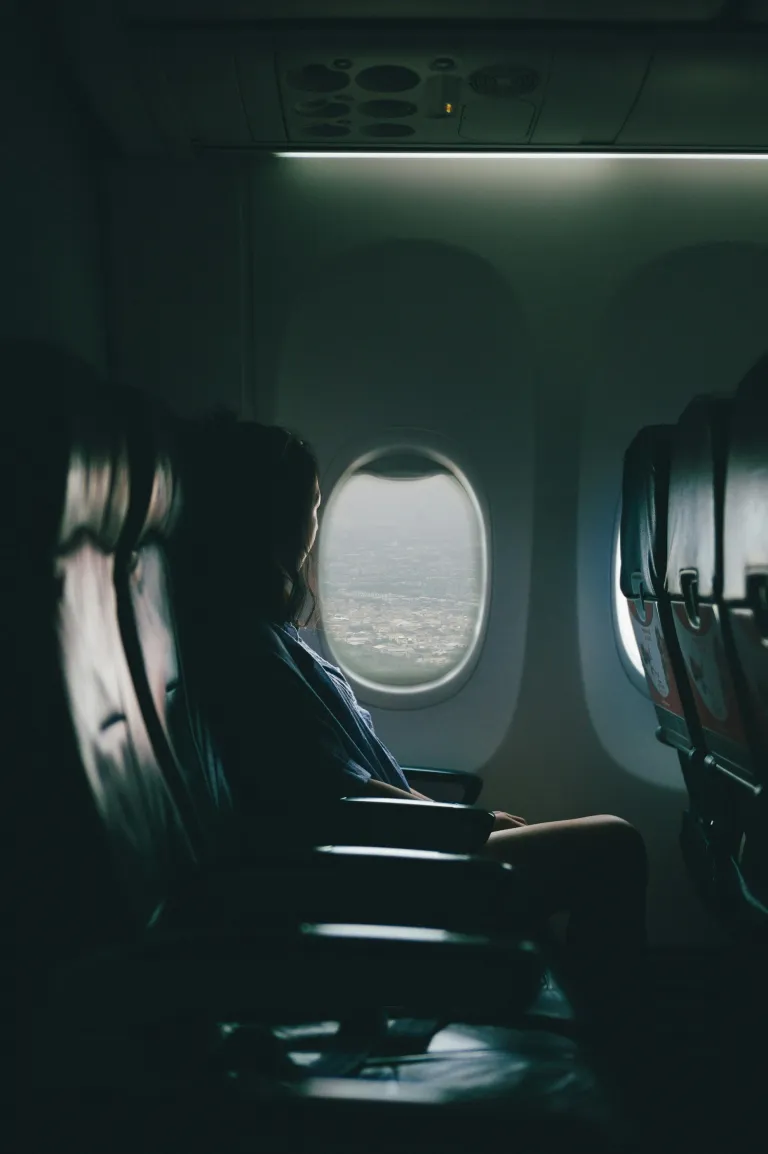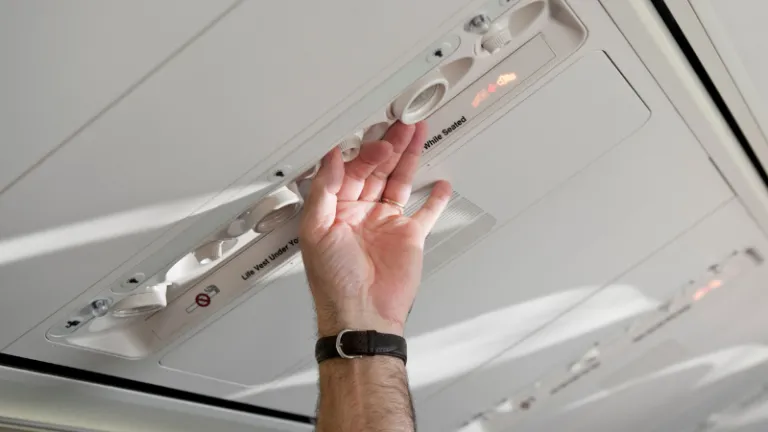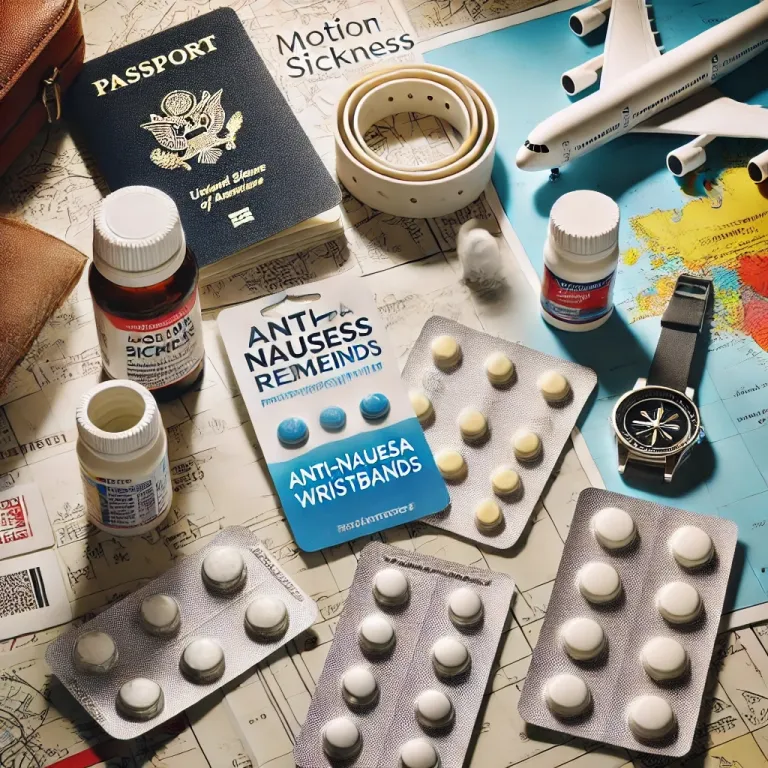Our favourite places to stay on this sleepy Cebu island.
How to Prevent Motion Sickness on Flights: Tips for a Smoother Journey

Flying is meant to be exciting—the thrill of heading to a new destination, the view from above the clouds, and the anticipation of new experiences. But for some travellers, the excitement is mixed with an unwelcome guest: motion sickness. That uneasy feeling in your stomach, the sudden dizziness, or the waves of nausea creeping in just as the plane takes off—it’s enough to turn a dream trip into a struggle to stay comfortable.
The good news? Motion sickness doesn’t have to ruin your journey. With the right strategies, you can keep it under control and actually enjoy your flight, whether it’s a quick domestic trip or a long-haul adventure across continents. From choosing the best seat to simple remedies that make a difference, these tips will help you prevent motion sickness before it even starts—so you can land feeling refreshed and ready for your next adventure.
Also read: 7 Money-Saving Tips When Shopping in Thailand
Pick the right seat
 Image credit: Killian Pham | Unsplash
Image credit: Killian Pham | Unsplash
Not all aeroplane seats are equal when it comes to stability. If you’re prone to motion sickness, try booking a seat near the wings or at the front of the plane. These areas experience less turbulence compared to the back, where movement is more noticeable. If possible, choose a window seat so you can look outside and focus on a stable point, which helps with balance and reduces dizziness.
Watch what you eat before the flight
 Image credit: Spencer Davis | Unsplash
Image credit: Spencer Davis | Unsplash
What you eat before boarding can make a big difference. Avoid greasy, spicy, or overly salty foods, as they can upset your stomach and make nausea worse. Instead, go for something light and easy to digest, like toast, crackers, or a banana. Eating too much or skipping meals entirely can also trigger motion sickness, so aim for a balanced meal a few hours before your flight. Opting for bland foods like rice or porridge can also help settle your stomach.
Stay hydrated (but avoid too much caffeine or alcohol)
 Image credit: engine skyurt | Unsplash
Image credit: engine skyurt | Unsplash
Drinking enough water is essential, especially in the dry cabin air of an aeroplane. Dehydration can make motion sickness symptoms worse, so sip water throughout your journey. However, avoid too much caffeine or alcohol, as they can dehydrate you and make you feel even more nauseous. A bottle of water and some light snacks like ginger biscuits or mints can help keep your stomach settled.
Limit screen time and reading
 Image credit: RossHelen | Canva
Image credit: RossHelen | Canva
Watching movies or scrolling through your phone for hours might seem like a good way to pass the time, but staring at a screen while the plane moves can make motion sickness worse. The same goes for reading books or magazines. If you start feeling dizzy, put your phone down, close your eyes for a bit, or look out the window to regain your balance. Listening to an audiobook or podcast is a great alternative to keep yourself entertained without triggering nausea.
Try natural remedies
 Image credit: Towfiqu Barbhuy | Unsplash
Image credit: Towfiqu Barbhuy | Unsplash
Ginger is a well-known natural remedy for nausea. Drinking ginger tea before your flight, sucking on ginger candies, or taking ginger supplements can help prevent motion sickness. Peppermint is another good option, as it has a soothing effect on the stomach. You can also try acupressure wristbands, which apply gentle pressure to a specific point on your wrist to reduce nausea. Some travellers also find relief from aromatherapy using essential oils like lavender or peppermint.
Also read: 10 Tips to Sleep Better on a Long-Haul Flight
Use the air vent
 Image credit: Eyejoy | Canva
Image credit: Eyejoy | Canva
Fresh air can do wonders when you start feeling queasy. Aim the aeroplane’s air vent towards you to help cool you down and provide a steady flow of fresh air. This can help prevent overheating, which often makes motion sickness worse. Wearing loose, breathable clothing can also keep you comfortable throughout the flight.
Stay relaxed and breathe deeply
 Image credit: Pinisetti | Unsplash
Image credit: Pinisetti | Unsplash
Anxiety and stress can make motion sickness symptoms worse. Try to stay calm by taking slow, deep breaths. Listening to relaxing music, meditating, or distracting yourself with a light conversation can also help take your mind off any discomfort. Progressive muscle relaxation techniques—where you tense and release different muscle groups—can also be useful in keeping your body at ease.
Consider motion sickness patches and medication

If motion sickness is a serious problem for you, consider these options:
Antihistamines (such as cinnarizine or promethazine) – Help prevent nausea and dizziness but may cause drowsiness.
Non-drowsy motion sickness tablets – Great for those who want relief without feeling sleepy.
Scopolamine (hyoscine) patches – A small adhesive patch placed behind the ear that blocks nausea signals in the brain. It lasts up to three days, making it ideal for long-haul flights.
💡 Tip: Always consult a doctor or pharmacist before using medication to ensure it's suitable for you.
Keep an emergency kit
 Image credit: Khyta | Unplash
Image credit: Khyta | Unplash
Even with all these precautions, it’s always good to be prepared. Pack an emergency kit with essentials like a small sick bag, wet wipes, tissues, and mints to freshen your breath if nausea strikes. Having these handy can make dealing with discomfort much easier.
Motion sickness doesn’t have to ruin your trip.
A little preparation goes a long way in keeping nausea, dizziness, and discomfort at bay. By making small but effective adjustments—like choosing the right seat, staying hydrated, and using natural or medical remedies—you can take control of your travel experience. Instead of spending your flight feeling queasy and counting down the minutes until landing, you can sit back, relax, and actually enjoy the journey. After all, the real goal isn’t just to reach your destination—it’s to arrive feeling good, refreshed, and ready to dive into your next adventure!
Published at
About Author
Jeliefer Sumaya
Subscribe our Newsletter
Get our weekly tips and travel news!
Recommended Articles
10 Bantayan Island Resorts, Hotels, and Rentals for Your Tropical Escape 10 Best Mountain Cafes in the Philippines for Your Peak Coffee Experience Coffee date on the mountains, anyone?
10 Best Things to Do in Los Angeles Los Angeles is more than Hollywood stars. From hikes with killer views to beaches straight out of a rom-com, here are 10 must-do LA experiences for Filipino travellers or any wanderers in general!
10 Creative Hangout Spots Around Metro Manila for Artsy Souls Looking for a place to meet fellow artists and thinkers? Here are 10 collaborative spaces in Metro Manila where creatives can hang out, brainstorm, and build ideas.
10-day Christmas and New Year Japan Trip: Complete Travel Itinerary Celebrate Christmas and New Year in Japan with this 10-day holiday vacation itinerary packed with Tokyo lights, Kyoto charm, and Osaka adventures.
Latest Articles
Philippines Among the World’s Friendliest Countries – US News 2025 Ranking Learn why Filipino hospitality makes every trip unforgettable.
Best Attractions of Southeast Asia That Delight Both Kids and Seniors These top attractions in Southeast Asia offer scenic views, easy access, and calm experiences for the whole family.
Halal Town Manila: Quiapo Set to Become a Muslim-Friendly Food and Culture Hub Manila is about to get more muslim-friendly!
Italian Cuisine Earns UNESCO Status as Intangible Cultural Heritage Food with culture
MMDA Urges Malls to Limit Sales as Marcos Highway Traffic Worsens Commuters are frustrated, but is this really the solution to heavy traffic?

